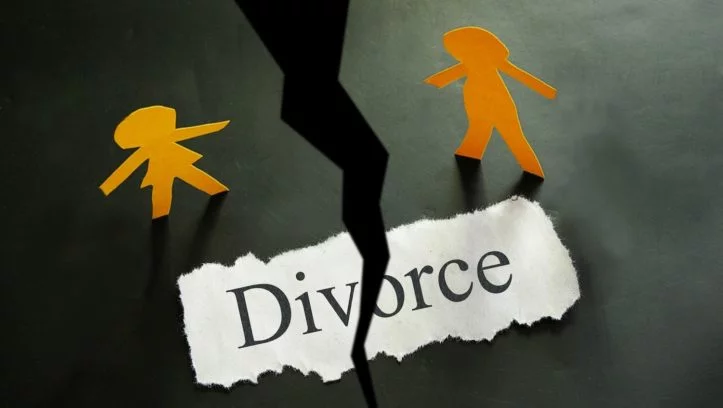
Did you know that nearly 50 percent of all marriages in the United States end in divorce? Given that fact, it’s wise to put asset protection measures in place before a divorce becomes imminent.
A well-crafted asset protection plan can keep your wealth safe when a marriage falls apart. This is especially important for wealthy individuals who have a lot to lose.
Read on as we discuss the best strategies for defending your wealth during divorce proceedings:
- Domestic Tools for Asset Protection During a Divorce
- How State Laws Impact Trust Protections During a Divorce
- Effective Offshore Asset Protection Tools for Divorce
- Why Offshore Trusts Work Best for Defending Assets Against a Spouse

Domestic Tools for Asset Protection During Divorce
In your efforts to safeguard assets during a divorce, you’ll come across many domestically based legal and financial tools. The following are among the most popular:
Prenuptial and Postnuptial Agreements
Prenuptial agreements are legal arrangements spouses make before marriage. Postnuptial agreements are arrangements spouses agree to after marriage. Couples can use both agreement types to divide their assets in the event of a divorce.
In most states, prenuptial and postnuptial asset protection agreements must be made in writing. Additionally, both parties must enter into the agreement voluntarily. If one side is pressured into signing the agreement, the terms can be voided.
The downside to these agreements is that their asset protection capabilities can be limited, specifically in divorce. This is because the couple drafts the agreement while they’re in a happy relationship. An overly rosy outlook can lead individuals to accept terms that don’t adequately support their legal or financial interests.
Furthermore, it’s typical for ex-partners to challenge prenuptial and postnuptial agreements during divorce proceedings. The goal is to prove that one former spouse agreed to the terms because of undue influence. If the court sides with the challenging partner, it can invalidate the agreement. This happens every day of the week.
Most importantly, prenups have a negative emotional impact. They create awkward conversations. Imagine telling your fiancé, “Hey, just in case this doesn’t work out, sign this.” Not only that, but you must also hire two separate attorneys: one that represents you and one that represents your future spouse. Each one fights for more in the event of a future divorce—that’s not exactly romantic.
A court typically considers the following when a prenuptial or postnuptial agreement is challenged:
- Disparities in age and knowledge: When one spouse is significantly older than the other, a court may determine that the older spouse took advantage of the younger one’s lack of knowledge.
- Significant income gap: A partner who earns significantly more has excessive negotiating power when creating a prenuptial agreement. Courts can invalidate these agreements if they feel the lower-earning spouse was pressured into an unfair contract.
- Lack of adequate counsel: Agreements signed without attorney guidance can be easily overturned.
- Illness and pregnancy: If someone is pregnant or ill during divorce proceedings, courts may decide that enforcing the existing agreement would put them in an unfairly precarious situation.
As you can see, prenuptial and postnuptial agreements can be useful, but they’re by no means bulletproof. To fully protect your assets during a divorce, you need to employ additional measures alongside these agreements.
Domestic Asset Protection Trusts
Domestic asset protection trusts (DAPTs) are popular legal vehicles individuals use to protect assets in the event of divorce. DAPTs rely on a trustee to hold assets on behalf of the trust creator (also known as the settlor). Transferring control of the assets to the trustee legally separates the items in the trust from the settlor. Therefore, when an ex-spouse comes after the trust, the settlor can reasonably claim that they no longer own those assets.
A domestic asset protection trust also allows the settlor to act as a beneficiary and co-trustee. They get to retain considerable control while still protecting their wealth from divorce and other threats. However, when acting as a co-trustee, the settlor must ensure that the other trustee handles asset distribution duties. If this is not done properly, the settlor’s ex-spouse could lay claim to items in the trust.
By using a DAPT alongside a prenuptial or postnuptial agreement, you can put significant obstacles between your ex-spouse and your wealth. However, certain state laws can impact the level of protection.
Here’s the major issue: Case law reveals significant weaknesses in domestic trusts. Results-oriented judges frequently pierce them, leaving assets exposed. In fact, more domestic trusts fail to protect assets in divorce cases than succeed. If you want a strategy that truly stands the test of time, consider an offshore trust—details below.
How State Laws Impact Trust Protections During a Divorce
One of the most glaring weaknesses of domestic asset protection tools is their susceptibility to local laws. If your spouse lives in a state with limited trust protections, your asset protection measures can easily be breached. Here’s a quick explanation of how certain state laws can impact your divorce asset protection strategy:
Common Law Property
Most states use common law property rules. This set of laws essentially states that any property an individual acquires during marriage is the sole property of the person who acquired it. For example, if one spouse purchases a condo, it is theirs alone. For property to be shared in a common law property state, it must be jointly purchased and titled by both parties. At this point, the property is equally divided, even if one party contributed more toward the property purchase.
However, if money from both spouses were commingled to make a mortgage payment or cover other expenses, the separate property theory can be breached. Many divorcing spouses have learned the hard way that “my” property was really “our” property.
Community Property
In community property states, assets acquired during marriage are distributed equally between a divorcing couple, regardless of who purchased the property. If one spouse purchases a home, and it is solely titled in their name, their spouse would still be entitled to half of it. Community property can include items like stocks, bonds, and jewelry acquired over the course of a marriage.
Separate Property
Most states have separate property rules in place to protect assets obtained prior to a marriage. Even if a state has community or common law property, assets acquired pre-marriage will typically remain with the person who purchased them. One spouse’s creditors cannot lay claim to separate property owned by the other spouse.Note: Separate property can also include property that the couple has agreed to treat as individually owned.
Co-Extensive Interest
Co-extensive interest allows creditors to access property that is jointly owned by a couple. Essentially, if one spouse has significant debt, and a creditor comes after their assets, the jointly owned assets are fair game. Co-extensive interest is applicable to debts and obligations that either spouse incurred before or during the marriage.
Quasi-Community Property
The law can also consider property as quasi-community property. This happens when a couple moves from a common law property state to a community property state. In most cases, quasi-community property acts like community law property and will be divided evenly between both spouses during a divorce.
Each of these property law styles adds layers of complexity to every asset protection strategy. To effectively defend your assets from divorce, regardless of your state’s law, you need to use offshore tools.

Effective Offshore Asset Protection Tools for Divorce
Offshore asset protection tools offer the best defense during a divorce. Why? Because offshore jurisdictions aren’t subject to domestic court rulings. Put simply, if a judge orders you to liquidate a trust to pay your spouse, your trustee will reject the demand. This benefit is vital for protecting assets during a divorce, as divorces are among the only events that can circumvent domestic trust protections.
Here are a few offshore tools we use to protect assets from a spouse:
Offshore Asset Protection Trusts
An offshore trust is the strongest asset protection tool of all. Its structure confers all the same benefits as a domestic trust. It also prevents judges from pursuing your assets since United States laws have no bearing on overseas jurisdictions. That is, offshore trustee companies are not subject to your local court orders.
Another advantage of offshore trusts over domestic asset protection trusts is the higher burden of proof for fraudulent transfer claims. In most domestic jurisdictions, the burden of proof for fraudulent transfer claims in most domestic asset protection trust jurisdictions is “clear and convincing evidence.” This means that if the transfer was likely made to protect assets from a spouse, it can be termed fraudulent.
In offshore jurisdictions that we utilize, the burden of proof is “beyond a reasonable doubt.” This is the highest burden of proof allowed. Creditors must prove with nearly 100% certainty that the trust was created solely to keep assets out of their hands. Very few people can meet this requirement, which makes offshore trusts almost impossible to breach.
Offshore Business Entities
Offshore business entities like limited liability companies (LLCs) and corporations are distinct legal entities separate from their owners. Thus, they are not subject to claims from their owner’s creditors. This is the case with Nevis LLCs and the Cook Islands LLCs.
As businesses are legally separate entities from their owners, one cannot use the debts and obligations of the business as the basis for a claim against the owner’s personal assets. Likewise, the owner’s personal creditors may not make claims against assets held by the LLC. If one spouse owns the assets inside of an offshore business entity rather than an individual, this can provide immunity from claims a former spouse makes during divorce proceedings.
Multi-Entity Asset Protection Structures
The best asset protection strategies for divorce incorporate multi-entity offshore structures. An example of this would be using an offshore trust in combination with an offshore LLC. This structure works in the following way:
- The divorcing spouse seeking asset protection establishes an offshore trust. (The spouse establishing the trust is called the trust settlor.)
- The settlor of the trust establishes a limited liability company. The trust owns 100% of the LLC.
- The settlor opens a bank account in the name of the LLC.
- The trust settlor transfers assets into the company account. As a result, it no longer legally ties those assets to the settlor.
- Under normal circumstances, the settlor of the trust may appoint himself or herself as the company manager. This allows them to control the assets held by the company.
- In times of legal duress, the trustee company / law firm can assume the managerial role of the company. This prevents a divorcing spouse from making any claim against the assets LLC inside of the trust holds.
This method, which uses two highly effective asset protection tools, is the strongest line of defense against divorce. By using a multi-entity structure, you virtually guarantee that no one can get their hands on your assets.

Why Offshore Trusts Work Best for Defending Assets Against a Spouse
It is important to note that many states allow former spouses to act as exception creditors. This means that domestic asset protection trusts cannot protect assets from divorce in most states that offer them.
Some states don’t have exception creditors, like Nevada. However, if you establish a trust in Nevada and live in another state, the laws of your residential state will supersede a Nevada trust’s protection.
Luckily, that won’t be an issue if you choose the best divorce asset protection strategy — an offshore trust. Offshore asset protection trustees don’t have to comply with U.S. court orders.

Call Asset Protection Planners to Defend Your Assets During a Divorce
If you’re worried about how your assets will weather a divorce, now is a good time to consider protecting them. By establishing an offshore asset protection trust with our help, you can rest easy knowing that your wealth is defended against divorce, creditors, and dozens of other threats.
Click the button below to book a consultation with an asset protection professional.



